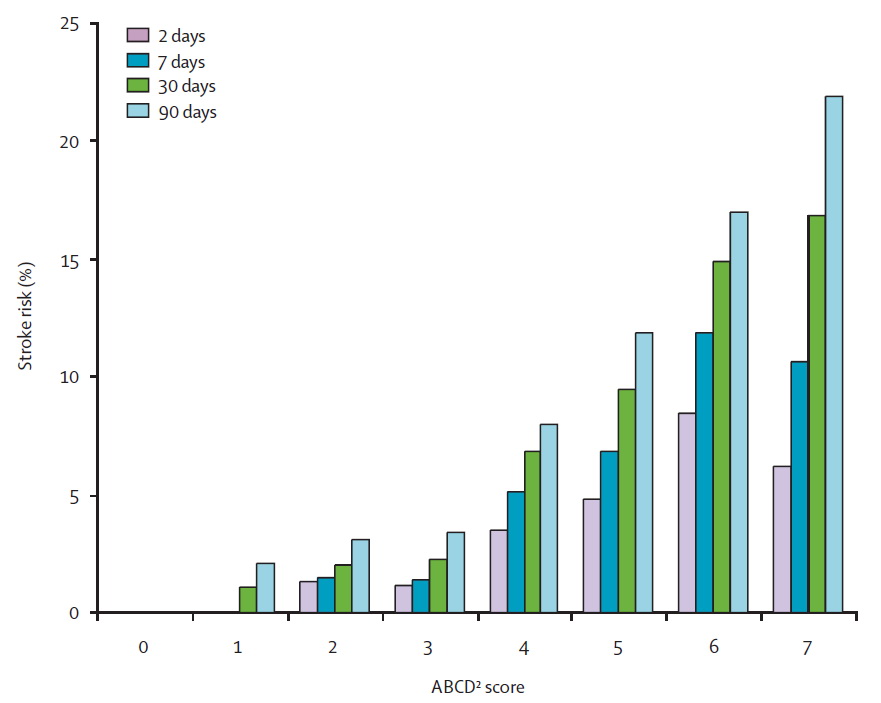ADD-ONS / SCALES
ABCD2 score
Updated on 08/01/2024, published on 23/03/2021
- transient ischemic attack (TIA) is a medical emergency defined as a brief episode of neurological dysfunction due to focal brain, spinal cord, or retinal ischemia without acute infarction or tissue injury (negative imaging)
- TIA requires prompt evaluation and treatment to reduce the risk of subsequent stroke (approx. 1 in 3 people with TIA will eventually experience a stroke)
- the ABCD2 score is a simple clinical prediction tool that helps to stratify patients presenting with a TIA according to their stroke risk
- a score of ≥ 4 points ⇒ high stroke risk; hospitalization is recommended (2-day stroke risk is > 4%, 7-day stroke risk: 5.9%!)
- always use this score in conjunction with clinical judgment and brain and vascular imaging findings!
|
ABCD2 score
(max. 7 points, high stroke risk ≥ 4 )
|
|
|
A Age ≥ 60 years
|
1
|
|
B BP ≥ 140/90 mmHg (either SBP ≥ 140 or DBP ≥ 90)
|
1
|
|
C Clinical features of the TIA
Unilateral weakness
Speech disturbance without weakness
|
2
1
|
|
D Duration of symptoms
<10 minutes 10-59 minutes
≥ 60 minutes |
0
1
2
|
|
D History of Diabetes
|
1
|
|
0-3
|
low risk
2-Day stroke risk: 1.0% 7-Day stroke risk: 1.2% 90-Day stroke risk: 3.1% |
outpatient management |
|
4-5
|
medium risk
2-Day stroke risk: 4.1% 7-Day stroke risk: 5.9% 90-Day stroke risk: 9.8% |
hospitalization rather recommended |
|
6-7
|
high risk
2-Day Ssroke risk: 8.1%
7-Day stroke risk: 11.7% 90-Day stroke risk: 17.8% |
hospitalization recommended |



